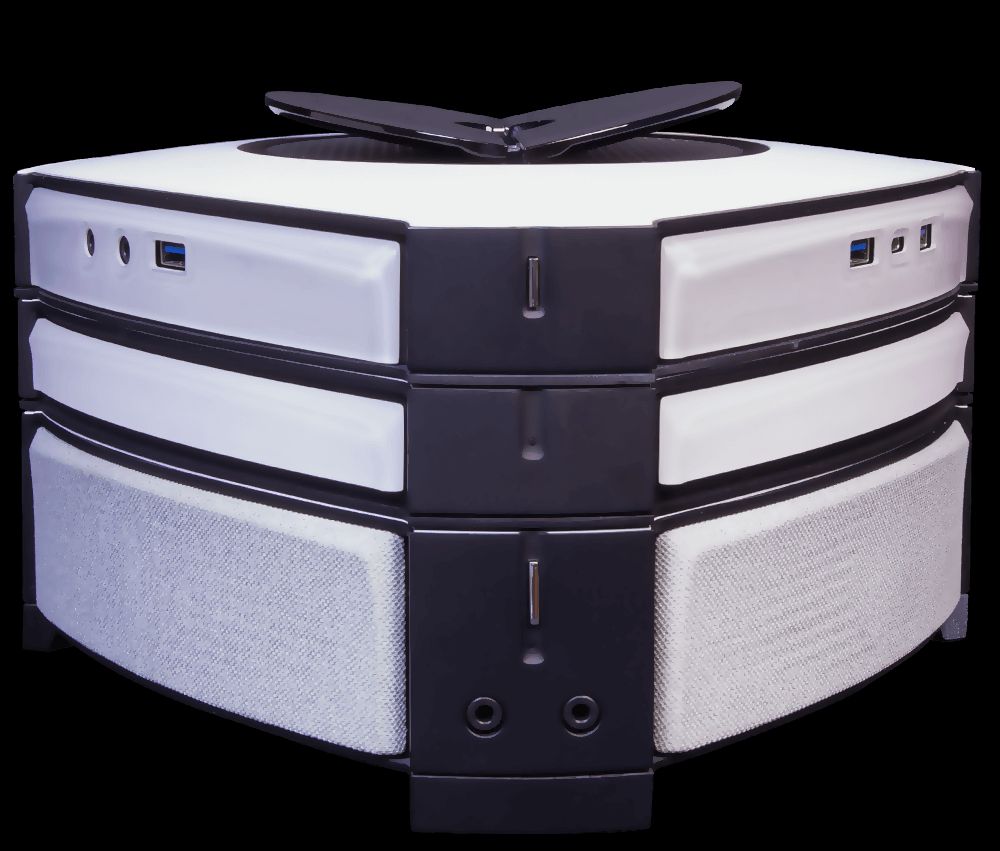The shape of Project Cielo is interesting, to say the least; at a glance, the system looks like three different-sized, knock-off Roombas, stacked on top of each other, with the base being the thickest of the lot. The problem here – as is the case with all concept designs – is that the product’s landing page doesn’t list down any specific details about Project Cielo’s hardware, save for the fact that the 5G antenna is hidden at the top of the PC and takes on the shape of a disc that transforms into a wing-shaped form when lifted. That said, the placement of Project Cielo’s I/Os and ports do give us an idea of how Gigabyte intends the modular machine to run. At the front, there are what we can only assume are USB-A 3.1 ports, both headphone and microphone ports, and a USB-C port. Around the back, the top unit can be seen housing an HDMI port at one end, indicating that this portion of the modular system is to be the GPU attachment. Interestingly enough, all three attachments seem to have a power port embedded in them, indicating that you can power all three through one source when stacked. However, the page also seems to imply that you will need at least two of the components before you are able to “fulfill” your gaming and entertainment needs.
Modular PCs aren’t new, by any measure of the term. Back in 2014, Razer showed off Project Christine, its own take on the form factor. With Project Christine, Razer envisioned a system that utilised the Plug-and-Play concept, whereby users could remove and replace multiple components at a time, without ever having to shut down the system. That, and it eliminated the horror that is messy cables. Of course, who can forget about KFC (Yes, that KFC) and its bucket-shaped gaming PC in 2020, also known as the KFConsole. Designed to keep its fried chicken warm, the system was fitted with some pretty impressive hardware back then. The bucket chassis was designed by Cooler Master, while internally, it housed an Intel Core i9-9980HK, an NVIDIA GeForce RTX GPU, and a 1TB NVMe SSD, courtesy of Seagate. (Source: Gigabyte, Videocardz)
